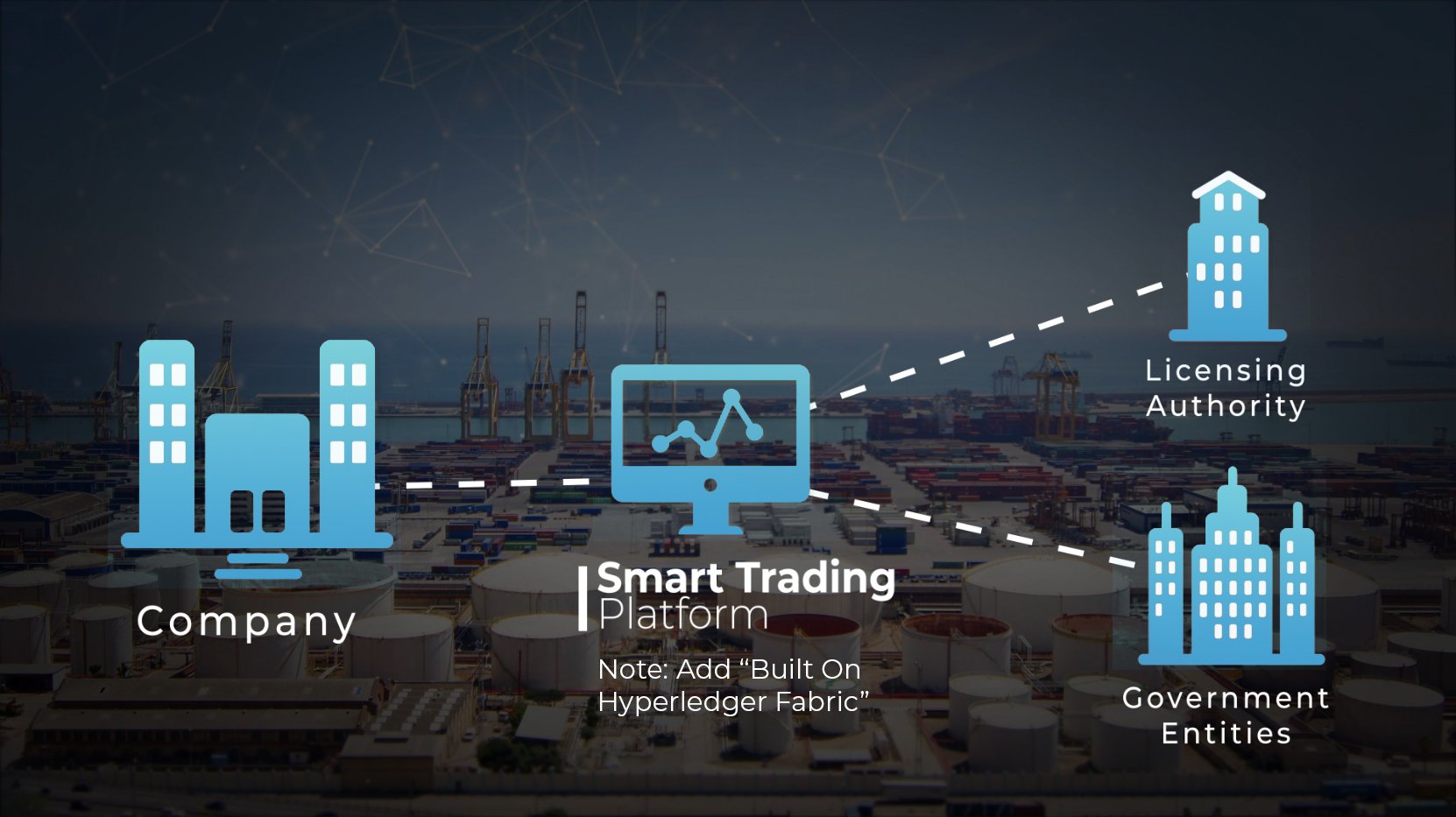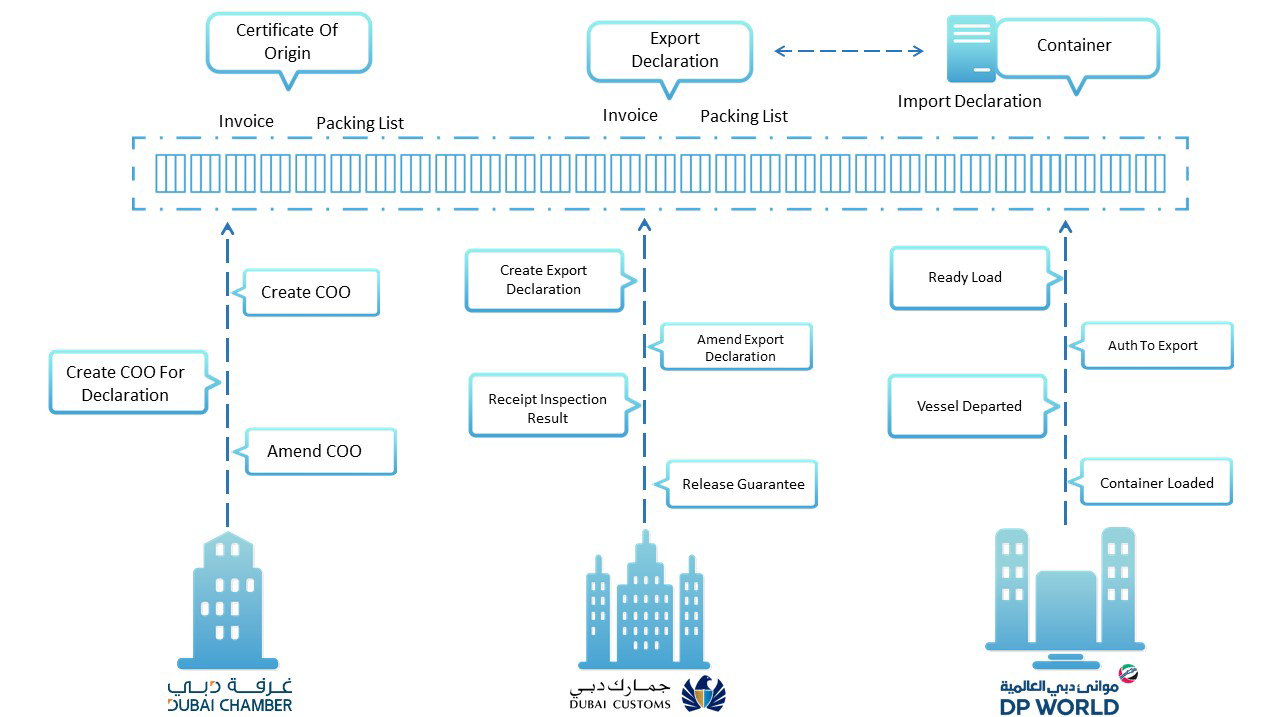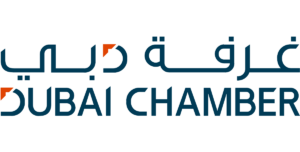Dubai’s Digital Silk Road modernizes trade with Hyperledger Fabric

Digital Silk Road
- Based in Dubai, the second largest city in the United Arab Emirates, with 3+ million people
- Part of Dubai 10X that aims to keep Dubai 10 years ahead of other cities
- The Digital Silk Road aims to ease the city-state’s trade with the world
Goals
- To create a trusted, real-time network for trade data
- To simplify the import/export process
- To eliminate unnecessary paperwork
- To position Dubai as one of the world’s best places to do business
Approach
- Set a bold blockchain strategy
- Test with a local payment system
- Plan access onto a new trade platform
- Start to build with a trusted partner: Avanza
- Open the on-ramp to the Digital Silk Road
Moving 100% of any government’s transactions to blockchain is an ambitious plan.
Staying 10 years ahead of other world cities is more ambitious still. Yet this vision, called Dubai 10X, has been set for Dubai by His Highness Sheikh Hamdan bin Mohammad bin Rashid Al Maktoum, Prime Minister of the United Arab Emirates and Ruler of Dubai.1
Fortunately, the city-state has a well-researched digital strategy and implementation plan. And since 2018, it’s been releasing blockchain-backed government platforms.
One of the Dubai 10x initiatives is the Digital Silk Road, a platform to ease worldwide trade. It aims to solve the global trading system’s key issues–high costs, low trust, and lack of transparency–with blockchain technology.
Dubai opened the Digital Silk Road with the launch of two initial projects: The Unification of Trade Registration and Export Authorization. These projects make trade in Dubai easier and more secure for companies. And they give trade authorities real-time, accurate information that complies with regulations.
With this successful start on the Digital Silk Road, Dubai has an open road ahead.
Setting a bold blockchain strategy
The United Arab Emirates (UAE) has a history of investing in technology to improve government operations. For example, in 2017 the country named H.E. Omar Bin Sultan Al Olama the world’s first Minister of State for AI.2
But AI isn’t the only technology Dubai is using. Under the Dubai Blockchain Digital Strategy, 100% of government transactions will move to blockchain.
“With the combined power of AI and blockchain, the UAE government stands to save AED11 billion (US$3 billion) in economic return and 389 million government documents per year,” said H.E. Omar Bin Sultan Al Olama in a keynote speech at the Future Blockchain Summit.3
Dubai is not new to adopting nascent technologies. In 1999, it began establishing e-governance even before global use of the internet had taken off. Now it’s adopting blockchain and other technologies as part of Dubai 10X.
Dubai 10X is an initiative to put Dubai 10 years ahead of other world cities in terms of technology. H.H. Sheikh Hamdan bin Mohammad bin Rashid Al Maktoum has called on the Dubai government to embrace disruptive innovation to meet this goal.4
One of the Dubai 10X initiatives is the Dubai Silk Road, a smart platform using blockchain to automate trade and the supply chain. It seeks to increase transparency, efficiency, and security. The Dubai Chamber and the Port Authority, called DP World, formed a joint team to deliver this bold project.
“With the combined power of AI and blockchain, the UAE government stands to save AED11 billion (US$3 billion) in economic return and 389 million government documents per year.”
Testing with a local payment system
The Digital Silk Road was not the first government system in Dubai to be modernized with blockchain. In 2018, the city-state updated its payment system. Citizens paid for everything from electricity and water to parking permits and dog licenses through various payment portals.
Reconciling and settling these payments was slow and labor-intensive. Staff first needed to sort through payments collected from different portals. Then they had to manually deduct fees due to each department. Finally they could transfer the remaining amounts to the relevant Authority. But this end-to-end process took up to 45 days.5
The new Reconciliation and Settlement System does all the same work in an instant. The system operates across 40 entities and 15 banks. This saves weeks of staff time and gives real-time visibility into Dubai’s revenues.
Each of the organizations on the platform had its own project management and security teams. This increased the complexity of the project and its coordination–making it a perfect test drive for the even more intricate Digital Silk Road.

“Dubai Chamber is proud to be the first chamber in the world to adopt and offer state-of-the-art blockchain solutions that simplify trade, improve ease of doing business and enhance economic competitiveness. This technology introduces plenty of far-reaching benefits for our members and regional partners, while it also has the potential to revolutionise the global trade landscape.”
Planning the foundation of a new trade platform
The Digital Silk Road is a broad, multi-year initiative. It’s intended to be a one-stop digital trading platform, marketplace, and matchmaker for people seeking and providing trade services.
For a road to be well-traveled, it must be smooth and easy to follow. But in Dubai, registering to import or export even a single container of goods was neither smooth nor easy. In reality, it was a lengthy process that touched on many authorities.

Unification of Trade Registration
First, a company needed to register for a trade license to operate in the country. To import or export, it also registered with DP World. Next it registered with Dubai Trade, Dubai Chamber of Commerce, and Dubai Customs. And if the trader ever updated anything? There would be gaps in the information among authorities.
For export, the process took even more steps. Exporters needed a Certificate of Origin, issued by Dubai Chamber. The exporter took the certificate and export declaration to DP World to gather documentation. Then to Dubai Customs to gather more documentation. All those documents would move from one organization to another until the goods finally left the country.
Dubai Chamber and DP World wanted to unify trade registrations and replicate information across all the authorities. And they wanted to streamline the exporting process and make it paperless.
Together they decided that two projects would lay the foundation for the Digital Silk Road: Unification of Trade Registration and Export Authorization.
“The project falls in line with our efforts to support the objectives of the Dubai Plan 2021, while it also complements our current initiatives that aim to reduce business costs and enhance economic competitiveness,” said Hamad Buamim, president and CEO of Dubai Chamber of Commerce and Industry.
“Before, the process was fragmented and repetitive. Updates didn’t happen in real time. And it was hard to scale to add business units and authorities.”
Start building with a trusted partner: Avanza
Dubai Chamber and DP World wanted to partner with a developer with a deep understanding of blockchain and software development, who could design and deliver projects of this size. And they wanted a partner with knowledge of Dubai, its authorities, and its agencies.
Avanza Innovations was a natural choice. The company had already partnered with the Smart Dubai Office for the Reconciliation and Settlement project. So Avanza had proven it could design and deliver complex blockchain projects for Dubai.
For the Unification of Trade Registration and the Export Authorization projects, Avanza wanted a mature, tested blockchain platform.
So it chose Hyperledger Fabric, the open source blockchain framework from the Linux Foundation, which had demonstrated it could handle production-grade transactions. The same platform was already supporting Dubai’s Payments and Reconciliation System.
As a private, permissioned network, Hyperledger Fabric has the advanced security required for sensitive trade. It offers smart contract support in multiple programming languages. And it provides a choice of optimized consensus algorithms. The choice of platform was recommended by Avanza, since they saw it as the most mature blockchain platform. It also helped that the Smart Dubai government was already working with Hyperledger Fabric and was heavily supporting it. Both the DP World and dubai chamber decided that doing use cases on Hyperledger Fabric would help them integrate and onboard other entities in a seamless manner.
“With the new platforms, there is a seamless user experience. All entities receive updates at the same time—there are no gaps in the data. And the entire system can scale easily and efficiently.”
Opening the on-ramp to the Digital Silk Road
Testing the first two projects for the Digital Silk Road began in late 2019 and they went live in January 2020.
“Before, the process was fragmented and repetitive,” says Waqas Mirza, CEO of Avanza. “Updates didn’t happen in real time. And it was hard to scale to add business units and authorities.”
With the Unification of Trade Registration, a company wanting to do business in Dubai can register once, through a secure, single-window interface. The data gets distributed across all government trade entities. And if the company needs to update any information, the new information is instantly shared by all.
Export Authorization tracks trade transactions, reduces transaction time, and enables secure, encrypted digital authentication. Seamless documentation sharing with relevant government entities happens through smart contracts. Compliance and regulatory checks happen throughout the process, which is completely paperless.

Export Authorization
“Dubai Chamber is proud to be the first chamber in the world to adopt and offer state-of-the-art blockchain solutions that simplify trade, improve ease of doing business and enhance economic competitiveness. This technology introduces plenty of far-reaching benefits for our members and regional partners, while it also has the potential to revolutionise the global trade landscape,” said HE Hamad Buamim, President & CEO of Dubai Chamber of Commerce and Industry and Chairman of the ICC – World Chambers Federation (WCF)
“With the new platforms, there is a seamless user experience,” says Ali Safri, Global Head of Presales and Innovations at Avanza Innovations. “All entities receive updates at the same time—there are no gaps in the data. And the entire system can scale easily and efficiently.”
Continuing on down the road
And the Digital Silk Road intends to scale up the system.
Additional blockchain networks to address other governmental processes are in the works, to further the Digital Silk Road’s registration and paperless processes. Smart contracts can move data from one platform to another.
Speaking about the Digital Silk Road strategy, Buamim said: “We have been able to develop a project that is aligned with the vision of the initiative and meets Dubai’s need for a platform that facilitates more cost-efficient, safer and faster trading. We can avoid all obstacles and unnecessary procedures and enhance our role as a trading chamber by using the latest technologies such as blockchain.”
In the future, the Digital Silk Road will make cross-chain connections with complementary platforms that handle trade financing, private business directories, and personal digital services.
Staying 10 years ahead of other world cities is an ambitious plan. With the help of Avanza and Hyperledger Fabric, Dubai has a solid foundation to support a modernized, digital marketplace and trade center. And the Digital Silk Road will bring Dubai closer to its 10X destination.
- https://dubai10x.ae/about-dubai-10x/
- https://www.youtube.com/watch?v=SnptoXyj1xk
- https://www.arabianbusiness.com/technology/395688-uae-to-save-3bn-in-economic-return-due-to-ai-blockchain
- https://avanzainnovations.com/blog/portfolio/digital-silk-road/
- https://www.smartdubai.ae/newsroom/news/2018/09/24/smart-dubai-launches-blockchain-powered-payment-reconciliation-and-settlement-system#listingPage=1&tab=event

About Dubai Chamber of Commerce and Industry
Dubai Chamber of Commerce and Industry was established in 1965. It is a non-profit, public organization whose mission is to represent, support and protect the interests of the business community in Dubai. It does so by creating a favourable environment; promoting Dubai as an international business hub and by supporting the development of business. To learn more, visit https://www.dubaichamber.com/

About DP World
DP World began in 1972 at Port Rashid in Dubai (UAE) and has grown from a local port to a global trade engabler. It has a team of over 50,000 people working at 150 operations around the world. Its operations include ports and terminals, industrial parks, logistics and economic zones, maritime services and marinas. DP World aims to be essential to building the bright future of global trade, ensuring everything it does leaves a long-lasting positive impact on economies and the world. To learn more, visithttps://www.dpworld.com/

About Avanza Innovations
Avanza Innovation builds future-proof tech that reshapes how organisations function, today and beyond using Blockchain, Artificial Intelligence, Smart City Enablement, Customer Engagement, and Robotic Process & Automation. It is part of the Avanza Group of Companies, which has decades worth of enterprise experience. To learn more, visit https://avanzainnovations.com/
About Hyperledger
Hyperledger is an open source effort created to advance cross-industry blockchain technologies. It is a global collaboration including leaders in banking, finance, Internet of Things, manufacturing, supply chains, and technology. The Linux Foundation, the nonprofit organization enabling mass innovation through open source, hosts Hyperledger. The Linux Foundation also enables a worldwide developer community to work together and share ideas, infrastructure, and code. To learn more, visit https://www.hyperledger.org/
Sign up for Hyperledger Horizon & /dev/weekly newsletters
By signing up, you acknowledge that your information is subject to The Linux Foundation's Privacy Policy